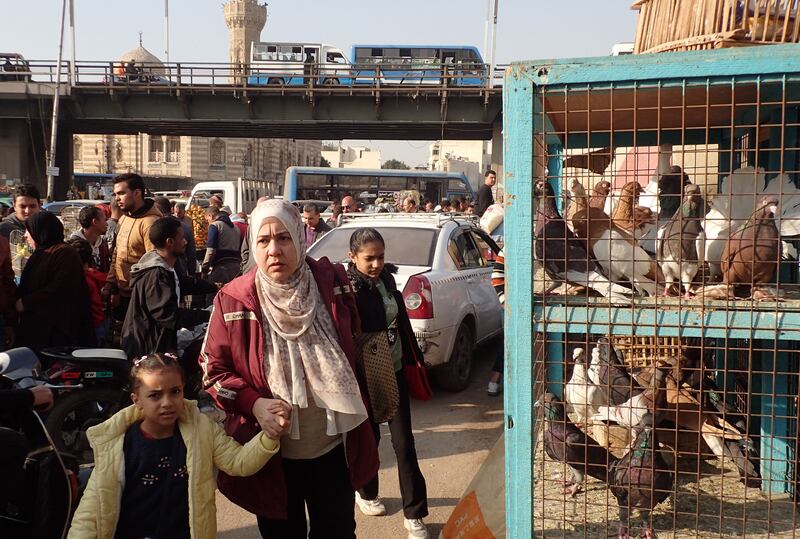Egypt will pay married women aged between 21 and 45 with two children or less an annual incentive of 1,000 Egyptian pounds ($32).
They will receive the entire sum when they turn 45.
This is the government’s latest effort to control population growth, the cabinet said.
The initiative, under President Abdel Fattah El Sisi’s National Project for the Development of the Egyptian Family, was signed between the Ministry of Finance and Ministry of Planning and Economic Development.
“Our strategy is twofold: first, to provide financial incentives for Egyptian women to curb population growth, and second, to ensure that every woman and every child receives a comprehensive package of health, education and economic services to promote growth and human dignity,” said Minister of Planning and Economic Development Hala El Said.
The country of 104 million people, now growing at a rate of one million every 10 months, has struggled with overpopulation for decades.
But it has become a national priority in recent months, as population growth continues to put a strain on government sectors.
A World Bank report published last month estimates that reducing Egypt’s fertility rate from 2.9 births per woman to 2.1 would result in a cumulative gain in gross domestic product between 2020 and 2030 of around 569 billion pounds and savings in the health, housing and education sectors of 26 billion pounds.
President El Sisi launched the national family development project in February last year to tackle the health, education, social, cultural and economic dimensions of population growth.
The government had previously run a “Two is Enough” campaign that included free family planning services, but this is the first time direct financial incentives are being offered.
Minister of Finance Mohamed Maait said the government will create an account under the unified treasury account to issue government bonds.
Women must commit to the terms of the project to be eligible, including periodic follow-up. A woman’s right to claim any money is forfeited if she gives birth to a third child.
The ministries will also create a database for the project with statistics related to the women who are targeted by the project, including their level of commitment.
It is unclear how effective financial incentives will be, as some population experts say there is a cultural belief in Egypt that more children will eventually bring in more income.
The reactions of social media users were mixed, with some praising the government’s unorthodox initiative and others saying it does not address the root of the problem or that the amount is too small to make a difference.
As Egyptians contend with record-high inflation and the economic fallout of the Russia-Ukraine war, one user wrote in response to the cabinet’s Facebook post: “You will get three kilos of meat every year, lucky girl”.







